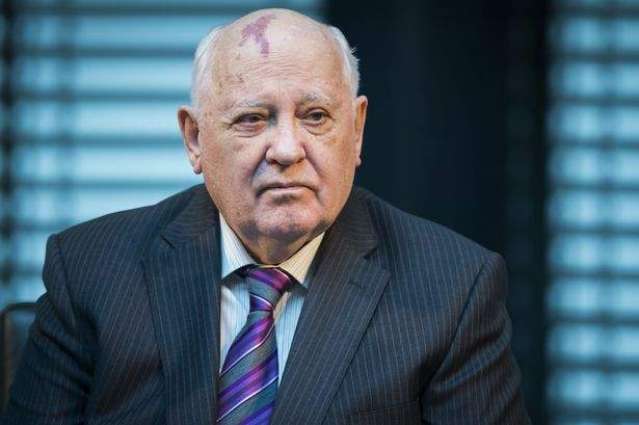The reunification of Germany at the dawn of the Cold War some 30 years ago was full of obstacles, former Soviet President Mikhail Gorbachev said on Tuesday, adding that there were serious doubts and fears both in the Soviet Union and Europe as a whole, as the haunting memory of World War II was still in the minds of people
MOSCOW (Pakistan Point News / Sputnik - 20th October, 2020) The reunification of Germany at the dawn of the Cold War some 30 years ago was full of obstacles, former Soviet President Mikhail Gorbachev said on Tuesday, adding that there were serious doubts and fears both in the Soviet Union and Europe as a whole, as the haunting memory of World War II was still in the minds of people.
On October 3, Germany marked its Unity Day. Thirty years ago, the German Democratic Republic, known as East Germany, officially ceased to exist and merged with the Federal Republic of Germany. The reunification happened thanks including to the pliant stance of the then-Soviet leadership under Gorbachev. The Treaty on the Final Settlement with Respect to Germany, also known as Two Plus Four Agreement, was signed on September 12, 1990, by East and West Germany, as well as France, the United Kingdom, the Soviet Union and the United States.
"The path to it [reunification] was not easy. It could not have been smooth ... The situation was tense, and any reckless step could lead to an explosion. In Europe, including in our country, there were doubts and anxiety. Frankly speaking, there were reasons for that. The memory of the devastating war unleashed by the Nazi regime has not been erased from the minds of people," Gorbachev said in a video address at the online round table dedicated to the 30th anniversary of the 2+4 Treaty.
The former president noted that the Soviet people suffered unprecedented losses in WWII, and therefore, the Soviet Union's role in the reunification of Germany was of fundamental importance.
"Despite the difficulties, obstacles and risks, we were able to achieve an important historic accomplishment. Documents that laid the foundations for security in Europe had been signed," Gorbachev said.
The politician went on to say that Germany had fulfilled its obligations under the 2+4 Treaty and within the framework of the agreement between the Soviet Union and West Germany.
"The Germans proved that the horrible past had been overcome and that lessons had been learned and conclusions had been drawn. And the Russians, after all the horrors of the war, showed understanding and met the Germans halfway," Gorbachev noted.
Gorbachev was the leader of the Soviet Union between 1985 and 1991. He was the first-ever and last president of the USSR from 1990-1991. In 1990, Gorbachev was awarded the Nobel Peace prize for his leading role in ending the Cold War.




